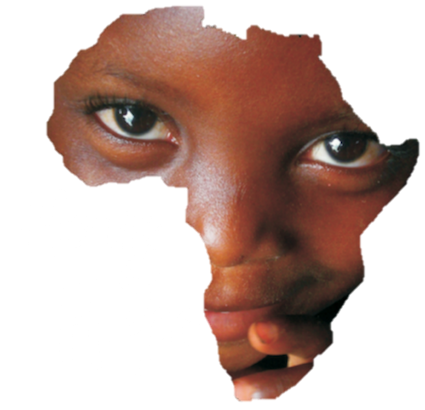KATHY ANEY – EAST OREGONIAN
Three large signs rise from the city dump in Nairobi, Kenya. They read, “Please don’t throw your baby away.”
Hundreds of desperately poor Kenyans pick through the 30-acre dump each day for food and items to sell on the streets. In the rubbish is the occasional abandoned newborn, sometimes alive, sometimes dead. Now, thanks to a simple, surprisingly successful program, moms are thinking twice about discarding their babies.
Kristen Van Cleave, of Pendleton, won’t soon forget both the misery and the hope she found in Nairobi last summer.
Van Cleave, 21, volunteered at the Dream Center, an orphanage for babies rescued from the dump or streets. The Blue Mountain Community College nursing student got a tour of the Nairobi dump on a gloomy, rainy morning.
“The stench hit us — it was hard to breathe,” she said. “There were people picking through the garbage with their bare hands.”
Some of the trash pickers sleep at the dump, she said, while others live in a nearby shanty town that squeezes more than 500,000 of the city’s most desperately poor into less than a square mile of shacks and open sewers. At the dump, she saw people trudging over the mountain of rubbish, searching for clothing, food, bottles and anything else they could sell or use for their own survival. People, some with small children, competed with dogs, storks and other animals.
Instead of obsessing about the level of human misery, Van Cleave focused on the hope she found at the Dream Center (where she volunteered) and in another program designed to lift mothers out of poverty by helping them start small businesses. A Canadian organization called Home of Hope runs both programs.
Home of Hope Administrator Karissa Paterson said the organization got involved after a staff member saw a news report about babies discarded at the dump a couple of years ago. At first, Paterson said, they paid watchmen to patrol the dump. The three guards rescued a few babies, but mostly arrived too late. The next move, though stunning in its simplicity, proved more effective. They installed three signs, one at each entrance, telling mothers, “Don’t throw your baby away.” Underneath the words was a phone number. The telephone started ringing immediately.
“That day, we started getting calls — we have an average of 15 calls a day,” Paterson said. “The majority come from mothers who are at a dead-end.”
Many children living at the Dream Center came directly from the dump. Paterson told of a 4-year-old boy named Benjamin who ran away from his abusive home and started picking through the dump for food. When he got tired, he slept in the rubbish. Finally, someone brought him to the Dream Centre.
“He literally smelled like garbage for a full week,” Paterson said. “It was in his pores.”
At the Dream Center, 40 children live in two houses, one for babies and another for older children. Van Cleave, who played with the children and taught them songs, was especially excited to meet a toddler named Jadon, who Van Cleave has sponsored since last winter. Jadon, 21 months, came to the center after his parents neglected him.
“He was locked in a home for four days without food and water,” she said. “He was chewing on his fingers.”
You’d never know by his dazzling smile, Van Cleave said. Jadon stood for the first time during her visit.
In March, Home of Hope launched a new program to prevent baby abandonment by giving poor mothers a way to start their own small businesses.
“Instead of giving them a handout, Home of Hope helps them build themselves up,” Van Cleave said.
They started with a woman named Stella, dubbing the program “The Stella Project.” Stella, a single mother of six, had survived by collecting plastic bags from the dump. She lived in a slum house with no toilet, running water or electricity.
“She cleaned all those garbage bags in the dirty river and sold them to businesses,” Paterson said. “It was a lot of work for almost nothing (about 25 cents a day).”
Home of Hope will cover her rent for a year in a new place, gave her $150 and helped her create a business plan and a budget. These days, Stella is making about $5 a day cooking and selling rice, ugali, vegetables and drinks.
The program evolved and is getting bigger. “We just raised $45,000 for 60 more ‘Stellas’” Paterson said.
During the summer, Van Cleave traveled to other orphanages and churches in Kenya and Rwanda for mission work, but she won’t soon forget the children who survived the dump in Nairobi. The visit fueled her passion for nursing.
“This has been my dream since I was eight,” she said. “I’ve always wanted to be a missionary nurse.”
